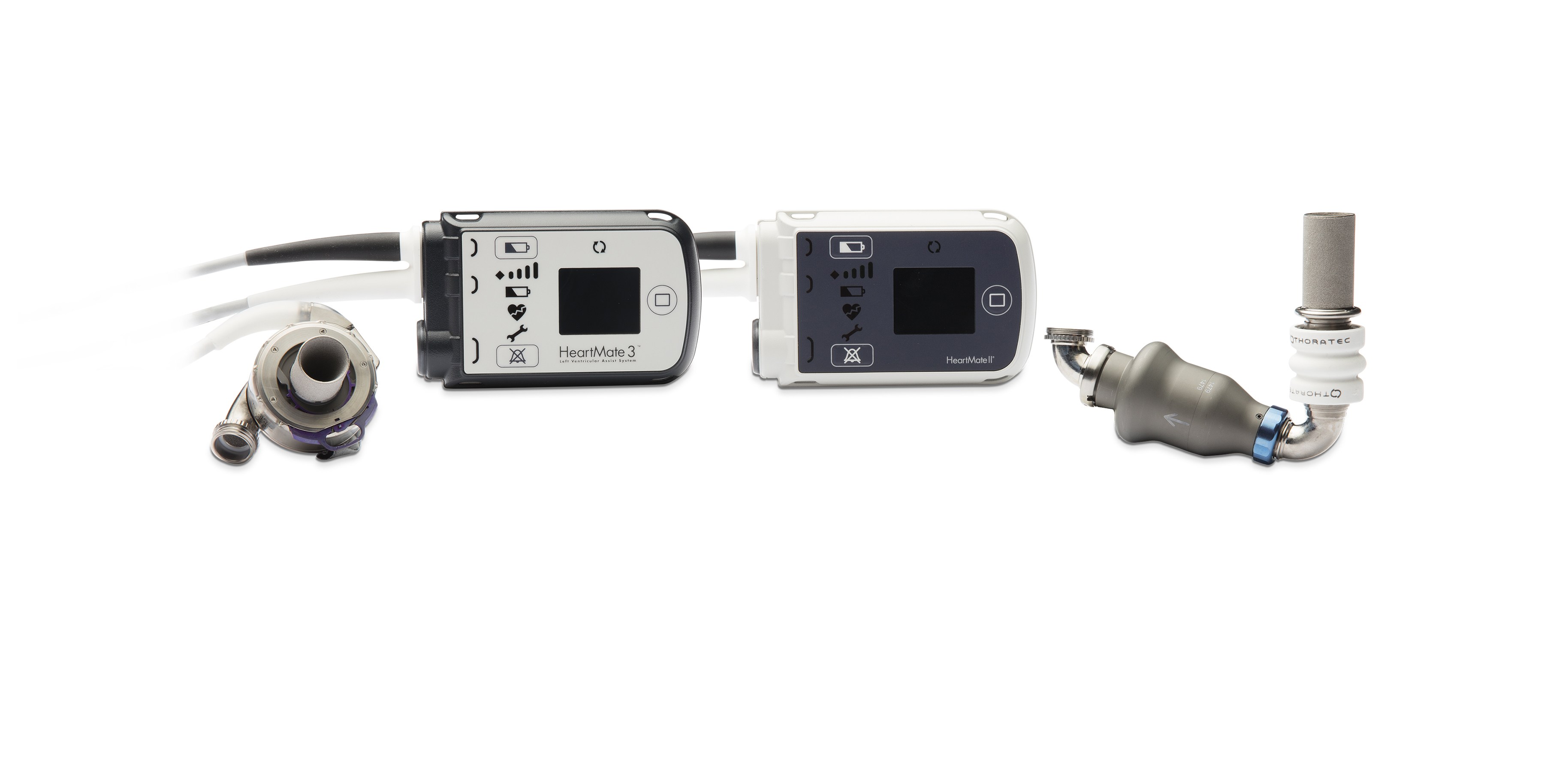
On October 19th, 2018, the HeartMate 3 Left Ventricular Assist System (LVAD) was approved by the FDA as a destination therapy for patients with advanced heart failure who are not eligible for a heart transplant.
The HeartMate 3’s approval was supported by results from the groundbreaking MOMENTUM 3 study, the largest LVAD trial and fastest enrolling trial to date, which showed that advanced heart failure patients who received the HeartMate 3 had fewer strokes and re-operations for pump malfunction, compared with the HeartMate II.
“In the MOMENTUM 3 trial, the HeartMate 3 proved itself to be the most hemocompatible device available with the lowest risk of thrombotic complications, including thrombosis and stroke,” said Mandeep Mehra, MD, who is a national co-principal investigator and Chair of the Publications Committee of the randomized study.
Traditionally, mechanical pumps for heart failure have been used for patients who were near death or dying and would need heart transplantation, according to Dr. Mehra. The FDA-approved HeartMate 3 provides a new option for heart failure patients who are very sick, despite pharmacologic therapy, who need durable mechanical circulatory support but not transplantation.
Highlights of MOMENTUM 3 Trial
Dr. Mehra, Medical Director of the Heart & Vascular Center at Brigham and Women’s Hospital (BWH), presented findings from the MOMENTUM 3 trial at the 2018 American College of Cardiology Scientific Sessions. The results of the trial were published in the New England Journal of Medicine in April 2018.
Patients who received a HeartMate 3 system in the MOMENTUM 3 trial experienced a significant improvement in their heart failure status as well as:
- 83 percent increase in 6-minute walk distance.
- 68 percent improvement in quality of life at 6 months.
- 86 percent survival rate with freedom from disabling stroke and reoperation to replace the pump at six months.
Additional two-year results include:
- The first 366 MOMENTUM 3 patients showed significantly lower rates of pump-related blood clots and stroke compared with the HeartMate II.
- Two-year survival without a disabling stroke or reoperation for a malfunctioning pump was 79.5 percent for HeartMate 3 patients, compared with 60.2% for HeartMate II patients.
- Fewer patients who received the HeartMate 3 needed a re-operation for pump malfunction (1.6 percent vs 17.0 percent) and no re-operations in the HeartMate 3 were due to blood clots within the pump.
“The innovative design of the MOMENTUM 3 trial also shortened the investigation-to-approval timeline. By applying the HeartMate 3 system to an all-comer patient population with refractory heart failure who need a circulatory support pump, regardless of transplant candidacy, the MOMENTUM 3 dramatically reduced the approval timeline from the typical 7-to-9 years to 2-to-5 years,” said Dr. Mehra.
HeartMate 3 Employs Revolutionary Technology
Unlike the axial flow pump with mechanical bearings in its predecessors, the magnetically-levitated, continuous centrifugal-flow pump in the HeartMate 3 is a major advance in preventing formation of blood clots within the pump.
“The magnetically levitated rotor contains no mechanical bearings and moves the blood using only magnetism. It’s designed to reduce the shear stress that is thought to cause blood clots to form in mechanical circulatory pumps,” explained Dr. Mehra.
The frictionless motor and wide blood flow paths of HeartMate 3 allows blood to traverse the device without being subjected to shear stress. Its artificial intrinsic pulse algorithm increases and decreases speed every two seconds to better simulate natural physiologic pulsatile function and prevent stasis of blood in the device that could lead to clot formation.
HeartMate 3 is Cost-effective, According to New Brigham study
In a paper published in Circulation on October 30, 2018, clinical investigators at the Brigham examined the cost implications of the HeartMate 3.
“Historically, left ventricle assist devices haven’t been considered cost-effective for advanced heart failure patients. Our paper showed that the HeartMate 3 was associated with about $50,000 in savings over a two-year period,” said Dr. Mehra, who was lead author on the paper and represented findings at the 2018 American Heart Association in a special session for the journal Circulation.
The cost improvements came from the reduction in stroke rates, and the lowered risk of pump thrombosis, which can require replacement of pumps in about 10 percent of cases. Dr. Mehra hopes proving the HeartMate 3’s cost-effectiveness will help close the significant referral gap for patients suffering from heart failure who could benefit from the therapy.
“In the past, we have focused on adding years to people’s lives. With an FDA-approved device like the HeartMate 3, which shows reduced stroke and reoperation rates, it’s pretty clear that we can now add life to people’s years,” said Dr. Mehra.